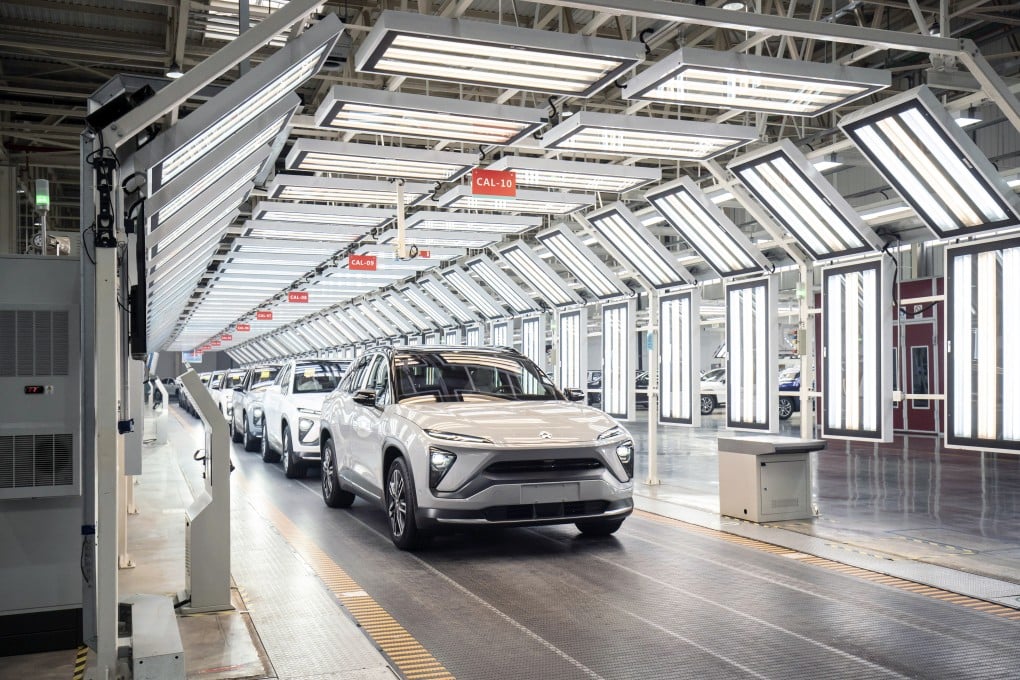Betting on tech firms like NIO and BOE pays off for communist officials in China’s eastern city of Hefei
- The Hefei government took advantage of NIO’s booming share price to cash out most of its stake within a year – making a handsome profit on its investment
- The average state stakeholder now invests in companies owned by almost 16 private owners, up from eight a decade ago, according to a study by academics

The municipal government of Hefei, a city in eastern China, pledged 5 billion yuan (US$787 million) to acquire a 17 per cent stake in NIO’s core business. The company moved key executives from Shanghai to the city, which is less than half the size and 300 miles inland, and began producing more vehicles there. The central government and Anhui, Hefei’s province, joined the city, making smaller investments.
It might look like the kind of power grab some observers see as characteristic of President Xi Jinping’s China: an assertive state enforcing an ever-growing list of dictates on innovative private companies that are destined to discourage entrepreneurship. But the story did not play out that way.
NIO turned its first profit in early 2021 and sold more than 90,000 vehicles by the end of the year. Rather than leveraging its stake to assert control, the Hefei government took advantage of NIO’s booming share price to cash out most of its stake within a year of its purchase – making a return of up to 5.5 times its investment – much like a private investor in London or New York might have done.
“From our investment in NIO, we ruthlessly made money,” Yu Aihua, the top Communist official in the city, said at a televised event in June that saw him seated on a podium dressed in a business suit and purple tie with entrepreneurs including NIO’s founder, William Li, seated below. “Making money for the government is not an embarrassment: It’s making money for the people,” he added.
Hefei has pioneered a shift in Chinese capitalism over recent years in which local governments are increasingly taking minority stakes in private companies. Since the 1950s, Hefei has been a hub of scientific research, but today its shrewd investments have transformed it from a relative backwater to a bustling metropolis of about 5 million people.
In terms of economic growth, what Chinese media call the “Hefei model” appears to work. In the decade to 2020, Hefei was China’s fastest-growing city in terms of gross domestic product.
China’s local governments control land sales, receive profits from state-owned companies, and have close ties with state-owned banks. For decades they have supported private companies by offering them cheap land and other subsidies, tax breaks, and loans to encourage investment. That has helped local officials, largely judged on the basis of economic performance, to win promotion from the ruling Communist Party.